
Having a baby is one of the most exciting phases of a woman's life. But it does have its challenges as well. If you are one of the mothers, who decide to breastfeed your child, congratulations!
Maternal milk is the best food for newborns and infants in the first six months of life. But no one said going through the breastfeeding phase was easy.
Be ready for breast engorgement to occur, which is the main challenge of this critical time of your life.
This page will cover everything you need to know regarding breastfeeding engorgement. You will understand not only the symptoms but also the best ways to deal with them.
Jump to:
- What is Breast Engorgement?
- Breast Engorgement Breastfeeding Symptoms
- Why does breast engorgement occur?
- How to relieve engorged breasts when stopping breastfeeding?
- How long does engorgement last after stopping breastfeeding?
- How to avoid breast engorgement while breastfeeding?
- Can you get breast engorgement when not breastfeeding?
- Best Engorgement Breastfeeding Tips
- Natural at Home Remedies
- When to consult a lactation consultant?
- Key References
What is Breast Engorgement?
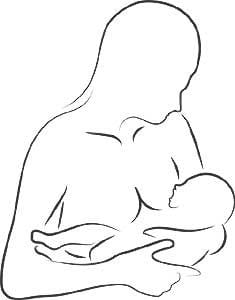 Breast engorgement is a phenomenon experienced by the majority of new mothers.
Breast engorgement is a phenomenon experienced by the majority of new mothers.
- While the symptoms might differ, this is a side effect of breastfeeding that you will not escape once you have your baby.
- The engorgement of the breasts happens when they produce more milk than your baby can eat. This can affect one breast or both.
- Engorgement appears due to the increased amount of milk that your breasts produce but also an increased blood flow and lymph fluids. This increase in milk, blood, and fluid affects the mammary glands and makes your breasts swell and hurt.
- If it is left untreated, it can lead to serious problems such as mastitis (a severe breast inflammation the requires medical attention).
![]()
Breast Engorgement Breastfeeding Symptoms
Each woman experiences breastfeeding engorgement symptoms differently. Some will feel them in a very uncomfortable way, while for others, it will be milder. Even with these differences, there are specific common symptoms that all mothers will have to go through.

- Swelling in the breasts area: This swelling will differ in severity from one mother to another, but all of them experience it at some level. Your breasts might become warm as well during this phase, and the skin might stretch. This can generate some marks on your skin that, in most cases, go away with time.
- Fever: You might experience a sort of fever of 38 degrees C or 100.4 degrees F. If it remains in these parameters, this fever shouldn't need special treatment. However, you should talk to your doctor to make sure that you are on the safe side.
- Nipples become flatter: This symptom might not affect you very much, but it will affect the baby, who will find it harder to latch on your breasts. During the breastfeeding phase, the areola around the nipples might get harder, which causes this symptom in the first place.
- Lymph nodes around your armpit areas: Breastfeeding can resent symptoms around your armpits, as well. If you notice such lymph in this part of your body, they might be a result of breastfeeding. Usually, these nodes are tender and a bit swollen, but they are not something to worry about as long as they are a symptom of breastfeeding.
![]()
Why does breast engorgement occur?
 Breast engorgement is a side effect of breastfeeding that is experienced differently by each mother. To understand this phenomenon, you need to know how breastfeeding is possible in the first place.
Breast engorgement is a side effect of breastfeeding that is experienced differently by each mother. To understand this phenomenon, you need to know how breastfeeding is possible in the first place.
- Once you had your baby, your body will start producing milk to feed them. This happens to all women the first days after giving birth, unless they have some medical condition that stops lactation.
- The first milk produced by your body is called colostrum. This increases in quantity and structure in a few days until it becomes the perfect nutrition for your baby.
- In this time frame, your body might produce more milk than your baby can eat. When this happens, the breasts can become engorged, hard, and sensitive to the touch and even painful. This effect is known as breastfeeding engorgement.
Breastfeeding engorgement also happens due to the increased blood flow in your breasts. Besides these changes, there will also be extra lymph fluid that accumulates in the tissues of your breasts. You might experience swelling and even itching in the breast area during this phase.
![]()
How to relieve engorged breasts when stopping breastfeeding?
When you get used to breastfeeding daily, and several times a day, you will find ways to cope with the engorgement effect. This is because your breasts will arrive in a cycle of being emptied out every time your baby needs to eat.
But what do you do when you stop breastfeeding?
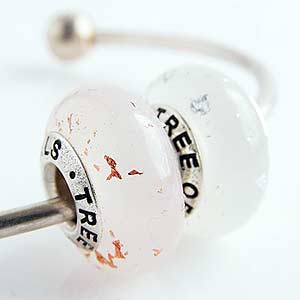
Here are a few things you can do to reduce engorged breasts once you stop breastfeeding!
- Don't stop breastfeeding cold turkey: Stopping breastfeeding doesn't mean that one day, you replace all your baby's meals with formula and solid food. It is a gradual process. You will have to go through a weaning process. The weaning starts when you introduce other meals to your baby other than breast milk. This process ends when breast milk is completely replaced with solid food and formula. Because you will go through this process, your body will have time to accommodate, which will make your engorgement easy to deal with.
- Stop pumping your milk when you stop breastfeeding: Many mothers think that the engorgement will go away for good if they empty their breasts. While this applies if you need some relief until the next time your baby eats, it doesn't work the same when you stop breastfeeding altogether. Pumping your milk will reduce engorgement, but it is only temporary. Your body will produce more milk to replace the supply. So, this is not a solution when you want to end the breastfeeding phase.
- Don't stimulate your breasts at all: It is essential not to stimulate your breasts and nipples when you stop breastfeeding. Wear a compact bra that keeps your breasts as still as possible and tries not to get in contact with them.
- Use anti-inflammatory medical treatments: Your doctor will most likely prescribe you just the medication you need to take for your situation. Don't experiment until you ask the opinion of a specialist.
![]()
How long does engorgement last after stopping breastfeeding?
The good news is that this uncomfortable side effect of breastfeeding doesn't last forever. The breast engorgement goes away between one and five days once you stopped the breastfeeding completely.
If your symptoms are not too severe, you can choose to give your body this time to end the breastfeeding cycle and get back to normal.
In less than a week, your breasts shouldn't experience any engorgement, and you will feel a lot more comfortable.
![]()
How to avoid breast engorgement while breastfeeding?
As uncomfortable as breast engorgement is, there are specific ways to make it feel better. Most of the tips that you can apply on the way you nurse.
- Nurse as often as you need to. It is vital not to skip nursing. Nurse early in the morning, throughout the day and even during the night. Pumping milk and storing it for further feedings is a useful thing to do but not the best if you want to reduce engorgement and even avoid it. You might get to nurse on average ten times in 24 hours.
- Give your baby time to finish one breast at a time. Switching between one breast and another will not help you with engorgement issues at all. Rather than doing that, give your baby time to empty one breast before switching to the other one.
- Make sure your baby is getting fed correctly. If your baby is in a comfortable position, they will latch easier. This will stimulate the milk flow better and reduce risks of clogged channels inside your breasts as well as engorgement.
![]()
Can you get breast engorgement when not breastfeeding?
Breast engorgement happens at different levels to all mothers.
- If you decide not to breastfeed your baby or a medical condition doesn't allow you to do that, your milk will still come into play.
- Your body will produce milk because this is only natural for it. However, if you don't breastfeed, this engorgement disappears in 24 hours or 48 hours, depending on your body.
- Your milk channels will dry, so you shouldn't have any further discomfort after that.
![]()
Best Engorgement Breastfeeding Tips
If you are a first-time mom, being aware of some valuable tips to deal with breast engorgement can be a lifesaver. You will know what to do to manage this phase of your life better and feed your child more efficiently and healthily.
- Choose the right bra to wear during breastfeeding months. Stay away from underwire bras that could add a lot of discomfort to your breasts. Instead of such a bra, go for one that will support your breasts and keep them in place at all times. Make sure the bra fits you, and it is not large or tight at all.
- Use a warm cloth on your breasts 5 minutes before nursing. The warmth from these compresses could increase milk flow and ease the breastfeeding process. You can also take a warm shower or bath to obtain the same result.
- Use a cold compress after breastfeeding. Cold compresses can relief a lot of the engorgement and pain. But make sure you don't apply cold compresses for more than 15-20 minutes at once.
- Massage your breasts at least once a day. You should make a morning or evening routine from massaging your breasts. This can reduce engorgement but also help milk flow.
- Nurse your baby every 3 or 4 hours. During the night, you can stretch this time to 5 hours, but not more than that. Nursing often will help you reduce engorgement and increase the milk flow in your breasts. It also enables you to avoid clogged milk channels. Plus, this is very good for your baby, so it is essential to keep up the nursing schedule.
![]()
Natural at Home Remedies
If you are dealing with a severe case of breastfeeding engorgement, there are some things that you can do without taking any treatment.
Since this is a problem that women face since the beginning of time, different remedies were developed too.

- Try cold compresses: Applying a cold compress on your breasts can reduce pain and discomfort significantly. You can use gel packs for the same purpose, as well. This will take away some of the swellings, and you will feel almost instant relief. You should keep the cold compresses on your breasts until you start feeling better. This could take a few minutes, so be patient with yourself. Do not use ice packs directly on your breasts. If you decide to apply an ice pack, always put a cloth between the ice and your skin to avoid injuries.
- Cold cabbage leaves: The cabbage leaves remedy is most likely one that you heard of before. You can add two leaves of cabbage inside your bra and forget about them for a few hours. Cabbage is known for reducing swelling and offering a lot of relief.
- Warm compresses work as well: Just like the cold compresses can reduce engorgement, warm ones can have the same effect. You can use a comfortable cloth that is soaked in warm water. Make sure that the cloth is not uncomfortably warm. If you have felt it warm on your skin without being hot, this is all you need. Leave the cloth on your breasts for up to 15 minutes and change it with a new one. You can repeat this as many times as you need.
- Use a breast pump: It is essential to empty your breasts when you feel them engorged. This doesn't mean that you have to feed your baby more than they need. But you could use a breast pump to express milk and then store it for later meals. However, it would help if you made sure you didn't express your milk too often. This can have the unwanted effect of stimulating them to produce even more milk. It is enough to do it once in a couple of days to gain some relief, according to how uncomfortable breast engorgement is for you.
- Gently massage your breasts: You can relieve some of the pain and discomfort by gently massaging your breasts. Use one of your favorite massage oils and gently rub it on your breasts without pressing too hard. It is a good idea to use only two fingers and make sure you press evenly on the surface of your breasts, especially where you feel the pain more intensely.
- Try mild pain relievers: Taking pain relievers is a slippery slope, so be careful with this path. You can take over-the-counter medication at the recommendation of your pharmacist. But it is even better to consult your doctor to know precisely just what you should take. When breastfeeding, gambling with any drug can be dangerous for you and your baby, so treat this with caution.
- Wear a supportive bra: There is a good reason why you can find special bras for breastfeeding times on the market. Wearing an appropriate bra that firmly supports your breasts can help you reduce the pain of engorgement significantly. Make sure that your bra is the perfect size for you without being too tight.
Suggested Reading:
![]()
When to consult a lactation consultant?
Most women are not sure when is the right time to go to a lactation consultant. There is so much information about breastfeeding that they feel like going to a specialist will not help them much.

But this couldn't be farther from the truth. A lactation consultant can help you go through the breastfeeding phase a lot easier.
They can also make sure that you don't get any complications during this phase.
2 extreme situations should lead you to a lactating consultant right away!
- When your breasts are sore and uncomfortable after several feedings. You will notice that breastfeeding, in general, involves a certain level of discomfort. But if you see that you are not getting the hang of it and you experience sore breasts every time you feed your baby, it might be a good idea to talk to a specialist. They will identify what you are doing wrong and how you can ease the feeding time for both you and your child.
- Your baby doesn't eat well. Some babies latch naturally to their mom's breasts, while others find it more difficult. Just like mothers, babies are different, and they need help. Breastfeeding is teamwork between you and your baby. If you notice your child is crying a lot and losing weight instead of gaining weight, they might not be eating right. In this case, you shouldn't delay talking to a lactation consultant. Babies can get dehydrated very fast, and this is something you should avoid from the beginning.
![]()
Breastfeeding is a fascinating time for a mother. It allows you to create a unique connection with your baby and an extraordinary emotional bond that will last a lifetime.
But this is important for both your health and their health as well. So, you should gather all the information you can to help you master this incredible time of your life!
Don't hesitate to talk to your lactation specialists and your doctor any time you have questions or concerns. It is always better to prevent complications than treat them!
![]()
Key References
- "Why is Breastfeeding Important for your Baby?". Accessed November 04, 2019. Link.
- "Breast Engorgement: Causes and Tips for Relief". Accessed November 04, 2019. Link.
- "Breastfeeding: Basics and Tips for Nursing Your Baby". Accessed November 04, 2019. Link.
- "What to Expect From a Lactation Consultant". Accessed November 04, 2019. Link.




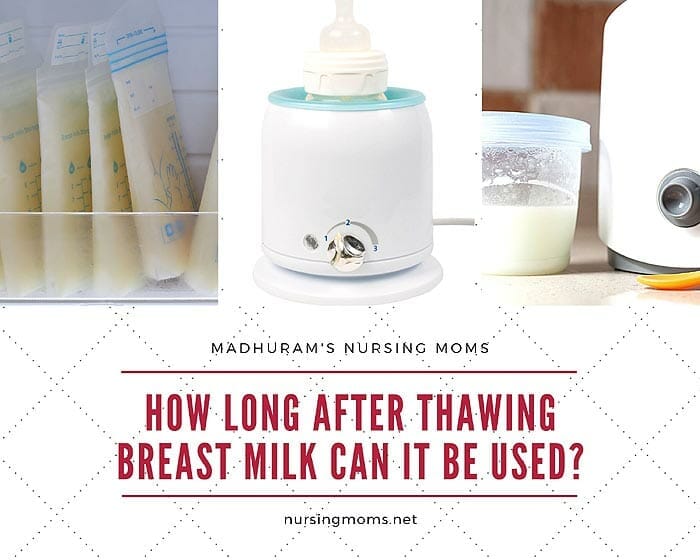
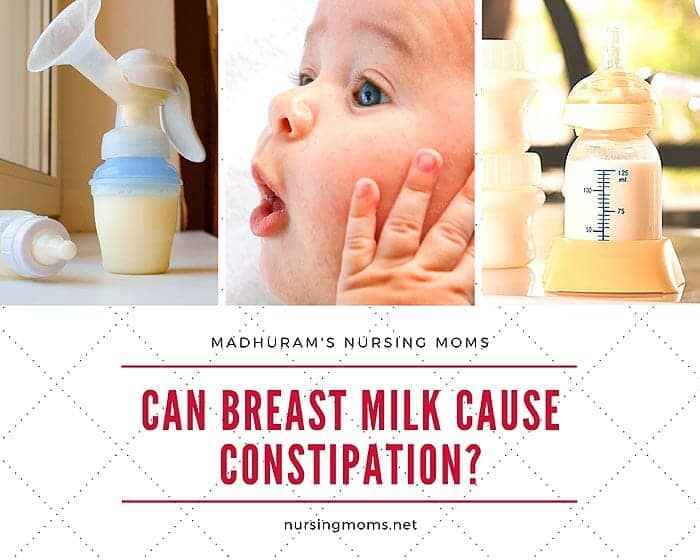

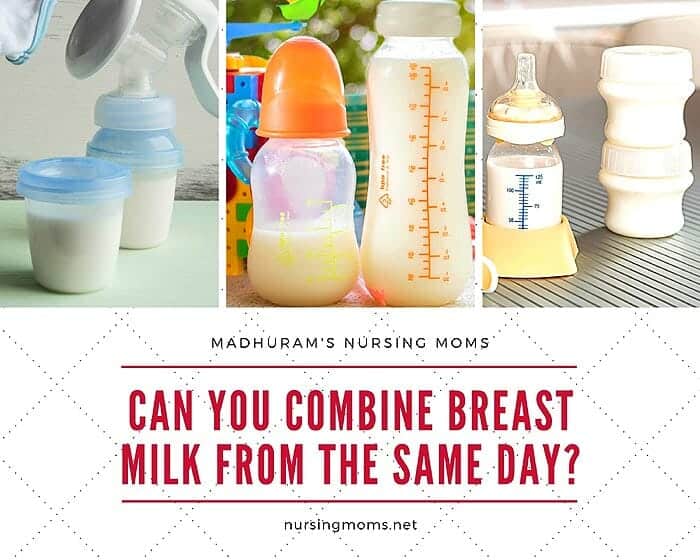
Leave a Reply